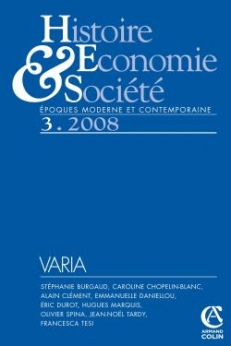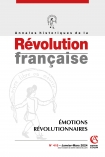
Histoire, économie & société (3/2008)
Pour acheter ce numéro, contactez-nous
Recevez les numéros de l'année en cours et accédez à l'intégralité des articles en ligne.
Dans le contexte de la guerre qui s’intensifie au début de 1793, la question des prisonniers de guerre des armées étrangères est, avec les levées de troupes, l’armement et l’équipement des armées, au coeur de la politique de guerre menée par la Convention jusqu’à sa séparation en octobre 1795. C’est à partir de 1794, avec la multiplication des victoires françaises et par conséquent du nombre des prisonniers, que la Convention est amenée à légiférer précisément sur ce sujet, l’essentiel des lois et règlements émanant du Comité de salut public et l’exécution de ces décisions revenant à la Commission de l’Organisation et du mouvement des troupes ainsi qu’aux autorités locales. L’attitude envers les prisonniers se révèle empirique, fortement appuyée sur les principes datant de l’Ancien Régime. La principale nouveauté est l’ampleur du travail des prisonniers, qui s’explique à la fois par leur nombre et la pénurie de main-d’oeuvre provoquée par lamobilisation des Français.
Under the circumstances of the war, that intensifies at the beginning of 1793, the question of war prisoners of the foreign armies, together with levying, arming and equipment, is at the heart of the Convention’s war policy until it splits up in October 1795. From 1794, with the increasing number of French victories, and consequently the high number of prisoners, the Convention had to pass laws to regulate these questions ; most of the laws and regulations come from the Comité de Salut Public, the carrying out of the decisions was the task of the Commission for the organisation and the troops’movement and the local Authorities. The behaviour towards prisoners is purely practical. It is inspired from principles dating back from the Ancien Régime. The main novelty consists in the prisoners’hard work, and this can be explained by their number and the shortage of the workforce resulting from the mobilization of the French.

